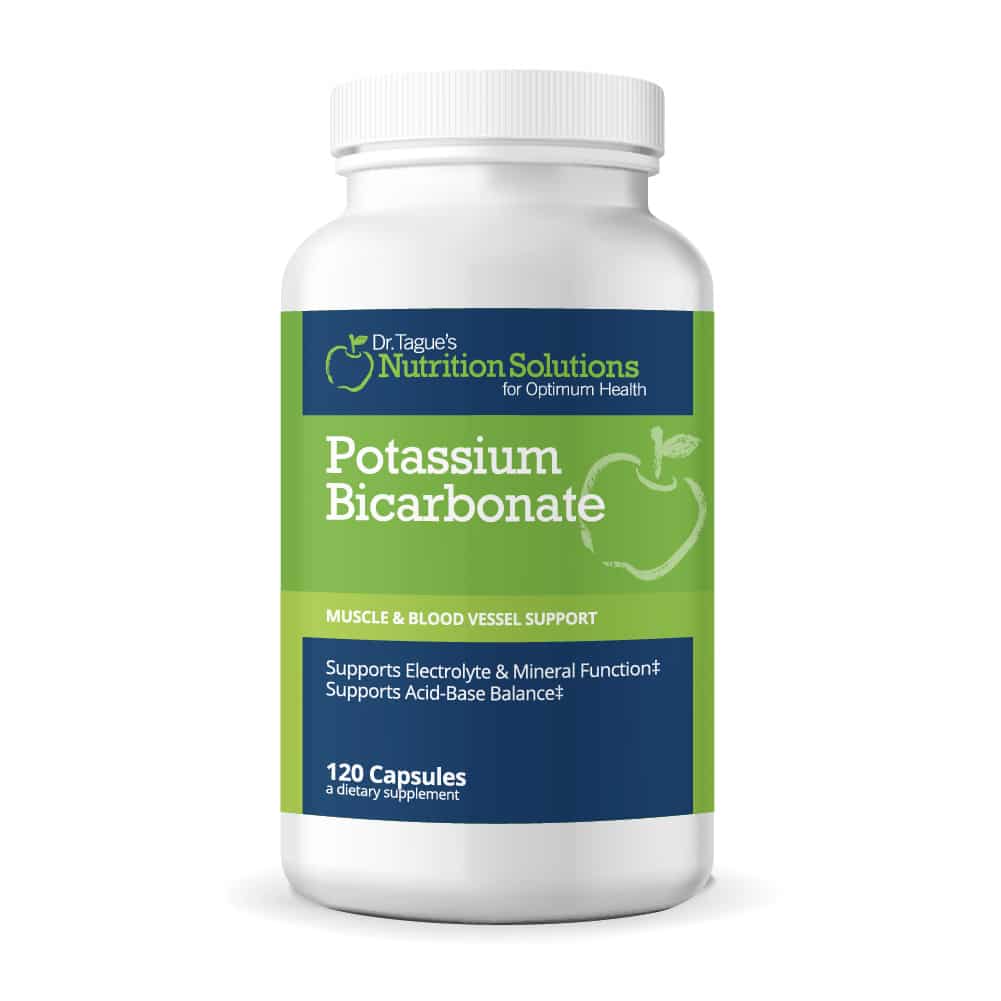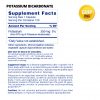Bones, Stones, and Blood Pressure: Why Potassium is MANDATORY for Health!
Vitamins AND Minerals in optimal amounts are essential for Optimum Health. If your goal is excellent health, pay attention to Potassium. Inadequate potassium can lead to irregular heart beats, muscle weakness, high blood sugars, high blood pressure, kidney stones, thinning bones, and an increased risk of heart attack and stroke. Got your attention? Potassium matters!!!
Potassium deficiency is literally robbing Americans of health! Potassium intake is about half the recommended 5,000 mg/day. These facts are why I recommend key strategies to increase potassium intake in my patients.
Potassium… found in “time-consuming” foods
Potassium is in fruits and vegetables, such as avocado, spinach, mushrooms, broccoli, banana, carrots, celery, tomatoes, raspberries, cherries, nuts, and strawberries, as well as in fish, chicken and beef (~200-400 mg/serving). Over time, potassium-rich plant-based foods have become more incompatible with busy lifestyles and less often consumed. Common “fast foods” and snacks have much less potassium than fruits and vegetables.
7-10 servings of fruits and vegetables every day is recommended as a way to achieve about half of our daily potassium goals (~2500 mg). However, as Americans get busier, we seem to consume less of these time-consuming “health foods” and more “fast foods”. Our more common fast foods and beverages (such as sodas) not only lack potassium, they create acid in our blood, creating more problems…
Better Bones and Muscles with Potassium
Acid tendencies in the blood cause the loss of bone and muscle as we age, creating an epidemic of osteoporosis and muscle loss. Potassium citrate in fruits and the supplement potassium bicarbonate can help reverse this acid-producing tendency.
A study in the Journal of the American Society of Nephrology, 2006, proposed that proper potassium supplements are a “simple” and “inexpensive” way to help reverse the negative effects of a “Western diet on bone health”.
Their study with potassium supplementation resulted in a 1.87% increase in bone density in just 12 months.
Along with bone loss, we also lose muscle as we age, about ½ pound each year, beginning in our 30’s. Over 30 years, it is a devastating loss of 15 lbs. Nursing homes are filled with frail men and women. Literally, we are urinating our muscle away at the rate of 4-5 pounds every 10 years, especially after age 50. Potassium (citrate or bicarbonate) helps put this to a stop by correcting the chronic acid state from the American diet. One study indicated that potassium supplements can reverse 10 years of muscle loss by restoring 4.4 lbs of muscle in just 12 months.
Helps Avoid Kidney Stones!
In a recent study involving children, potassium (citrate version) reduced calcium in the urine and reduced the risk of kidney stones FIVE-fold! Note: Prescription potassium citrate is used to lower risk of certain kidney stones by keeping urine pH at least 6-7.
Blood Pressure: Want to lower your blood pressure? Potassium might help!
More sodium and less potassium in the diet (what Americans do) is associated with elevated blood pressure, increased heart disease risk and overall death rates. 1 in 3 Americans has high blood pressure. High blood pressure is the most common reason for prescription drugs in the U.S. and causes 62% of strokes and 49% of heart disease.
Potassium supplements significantly lower both systolic (top number) blood pressure and diastolic (bottom number) blood pressure. One study showed a very significant blood pressure reduction of 8 mm Hg systolic and 6 mm Hg diastolic, although other research suggests a lesser, but significant effect.
Blood pressure at or above 120 (top number) and over 80 (bottom number) is present in 60% of adults and increases the risk of stroke and heart disease. A blood pressure of 110/70 or less is optimal. Consuming less salt and more potassium, getting more physical activity, limiting alcohol and maintaining an optimal weight are all helpful and are more powerful than medications at preventing strokes and heart disease.
3 Simple Ways to Increase Potassium Intake:
1. Get your 7-10 servings of fruits and vegetables daily, such as avocado, spinach, mushrooms, broccoli, bananas, carrots, celery, tomatoes, raspberries, cherries, nuts, and strawberries. This strategy can get you about half way to your goal! Potassium is just one of the countless health-promoting nutrients within these powerful foods! Fish and chicken can also be helpful.
2. Drink beverages that contain potassium, including coffee and tea. With ~100 mg per serving, these drinks are health promoting!
3. Use a salt substitute at home, such as Morton’s Lite Salt, which substitutes 50% of the sodium with potassium. Morton’s Lite Salt is the salt I personally use at home.
4. Consider a potassium supplement, such as Potassium Bicarbonate, which provides potassium, while the bicarbonate neutralizes acid in the body for bone and muscle health. For Potassium Bicarbonate that supplies 250 mg per capsule, 1 capsule twice daily will provide 10% of your recommended daily potassium. 1 capsule four times daily will provide 20%.
Summary:
Achieving goals for potassium intake can impact blood pressure, keep bones and muscles healthy, lower risks for heart disease and stroke, lower risks for kidney stones, and support lower blood sugars. Potassium matters!
Note: Consult your healthcare provider prior to taking potassium supplements. Avoid potassium supplements if on “ACE Inhibitors” or angiotensin receptor blockers (ARB’s) for blood pressure, such as lisinopril or losartan, or “potassium-sparing” diuretics, such as triamterene. Those with chronic kidney disease or diabetes should avoid potassium or take only under medical supervision.






